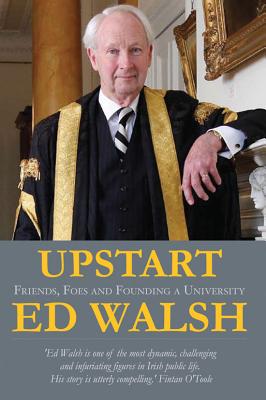From Failte 32 email/newsletter 03/09/11 – Comprehensive Immigration Reform…..A Comprehensive Solution is Required…
Employment options under different work visa programs can vary considerably.
Since the Failte 32 initiative was launched last May by the then New York Consul General, Hon. Niall Burgess, it has been active in both promoting the new one-year J-visa to U.S. employers and seeking employment opportunities under the scheme. The initiative welcomes the recent meeting between Irish Department of Foreign Affairs (DFA) and the U.S. Department of State to review progress. The DFA and Ireland’s Embassy in Washington remain in ongoing contact with the State Department in relation to improving the take-up of the Visa.
It is important that those giving consideration to applying for a work visa, in particular the J1 visa, be very clear on the range of employment options open to them under the visa program. Such is what Failte 32 has been trying to communicate in its recent series of J1 ’employment eligibility’ articles in order to flesh out all eligible employment options under the scheme. We believe that both the stringent eligibility criteria, and the lack of an exhaustive list of eligible employment options, has been an impediment to the uptake of the J1 visa program. One would expect any work visa program to have as large a take-up as possible within its ‘target market’, even if its eligibility criteria has a specific focus, such as the necessity to find employment in one’s area of expertise in the case of the J1 visa program. If the take-up of a particular visa program is minimal, it would seem to indicate that its criteria is being perceived or defined too narrowly in practice; therefore, every effort should be made to correct this.
Failte 32 now plans to extend this discussion to other visa types with the help of our new immigration attorney, Caro Kinsella, to bring awareness to those considering emigrating of the availability of other visa types that may offer them broader employment options in the U.S. Ms. Kinsella will give a detailed breakdown of each visa type in her upcoming articles.
Failte 32 believes that the path to “green card” status, and eventual U.S. citizenship, can be achieved in the majority of cases for those on the current range of work visa programs (and a detailed evaluation of your immigration history by an appropriate immigration agency or lawyer). There are variables of course depending on the type of visa you have, including the time it will take you to get your green card which can vary anywhere from 18 months to 5 years. This route to ultimate green card status, although not ideal, is nevertheless an existing working system/process that at least partly achieves that which comprehensive immigration reform will achieve. Therefore, every effort should be made to improve and develop the current portfolio of transient/exchange work visa programs.
While Failte 32 fully supports the importance and worthy cause of comprehensive immigration reform, we see no reason why, in parallel, all Immigration reform organizations cannothelp build upon what has already been realized in the area of transient/exchange work visa programs. And, to do that, all to be undertaken is a more proactive promotion of existing work visa programs, a broadening of the several programs’ reach, scope, etc., and a continuation in the development and negotiation for newer work visa programs. Failte 32 hopes that this will result in a sufficient range of work visa options as to providea work visa option for all i.e. legal working status, which, for all intents and purposes, is the main component of any comprehensive immigration reform bill, and complement the efforts being made towards achieving comprehensive immigration reform. Failte 32 understands the importance of comprehensive immigration reform, particularly for those who are currently undocumented, but it also wants to make sure that the number of undocumented coming from Ireland (which keeps feeding the problem) lessens significantly over the coming years by focusing attention on tackling the problem at the very earliest stage i.e before our people emigrate. Therefore, the ‘undocumented’ problem has to be dealt with in a ‘comprehensive’ way by everyone working together on both sides of the Atlantic.
Therefore, what might be needed is that a more coordinated approach be taken by the Irish Govt. and other Irish organizations involved in immigration reform, on both sides of the Atlantic, to improving and developing the current portfolio of Irish work visa programs. Organizations in the U.S. involved in immigration reform have shown themselves to be very resourceful and skillful at gaining support for the establishment of U.S. visa programs, outside of comprehensive immigration reform, including the Morrison visa program. Although the Morrison visa program granted ‘green card’ as opposed to ‘transient’ visa status to recipients, it clearly shows the ability that these immigration reform organizations have to win U.S. Government support for visa programs, outside of comprehensive immigration reform. Further, it shows the value these organizations could bring, in the interim, to establishing a more broad portfolio of Irish work visa programs.
The reality is that emigration from Ireland will increase significantly over the coming years, and, therefore, steps should be taken to promote and manage it in a way that ultimately attracts back our ‘huddled masses’ to Ireland with the knowledge and skills they have gained while in the United States. Emigration (maybe we should refer to it as ‘transient emigration’), if managed properly, is not a bad thing. It can be a healthy dynamic for any country, as long as it can attract back its emigrants (transient/exchange visas help achieve this), and provide a reduction in the economic burden during times of high unemployment. Consider a case where recent graduates decide to emigrate, as they cannot find employment in Ireland (which may be inevitable for many upcoming grads). However, further, although recent graduates, they are out of college more than a year. Had the J1 visa program been more aggressively promoted, they may have decided to leave earlier under J1 and, hence, avoid the ‘undocumented’ route a year after graduation. Thus, we should try to survey/poll third and fourth year undergrads to find out whether or not they have intentions of emigrating, so that we can promote immediate uptake of the J1 as soon as they graduate, helping them to avoid taking the ‘undocumented’ route once they become ineligible under J1.
Although transient visas can provide the option of a route to full green card status and, ultimately, citizenship, which can help reduce the number of undocumented, they also, unlike comprehensive immigration reform (emigration by definition is long-term), serve another important role: viewing emigration as a transient concept with the ultimate aim of attracting back our most valuable resource, our people, once they have spent a period of time abroad.
Ms. Kinsella, our new immigration attorney, has extensive experience advising clients on the various visa programs available to Irish nationals. She firmly believes that many of the currently available work visas are misunderstood by many applicants, and that she can help applicants achieve legal working status. If, however, you are undocumented, then Caro will go through your immigration history to see whether or not she can either help you get immediate lawful status, or in the alternative, help you attain lawful status in the future. However, the key is to seek legal guidance on the different visa options before deciding to leave Ireland. Ms. Kinsella has kindly offered to provide a free-of-charge, initial consultation to those seeking immigration advice. The Emerald Isle Immigration Center (www.eiic.org), Aisling Irish Community Center (www.aislingcenter.org), and the Irish Immigration Center (www.iicenter.org) provide many free support services for immigrants. One should first determine if assistance for his or her needs can be provided free of charge by contacting these organizations or our immigration attorney, Ms. Kinsella.
Efforts such as Joe McManus’ speech (copy available under ‘Visa Support’ tab), on behalf of the United Irish Counties Association of New York, to the Oireachtas All-Party Group on the Undocumented, help engage all parties to, among other things, broaden the reach and scope of the IWT J-1 visa (which can be an easier goal to achieve in the short to medium term than comprehensive immigration reform), and complement efforts by the Irish Govt. to reduce the percentage of undocumented Irish in the U.S.
In closing, to reiterate, Failte 32 has been active in both promoting the new one-year J-visa to U.S. employers and seeking employment opportunities under the scheme. Although Failte 32 plans to continue to support the J-1 visa program, its service has been extended to include all visa programs, with particular focus on the H-2B visa which provides for broader employment options when compared to the J-1 visa program. This ties in with Failte 32’s main aim of helping our newest arrivals find employment in the U.S.
Failte 32 will act as a source of the best impartial information that will assist those considering emigrating, or who have already emigrated, in choosing the best visa option for their particular situation, and lobby the appropriate agencies to improve and develop the current portfolio of transient/exchange work visa programs. There are many other viable visa options besides the J-1 visa, based on one’s individual circumstances; we encourage everyone considering emigrating to look into these other visa options.
The great thing about the Irish is that we never sought to conquer another country; rather, we left our country as either emigrants or missionaries, both very noble and honorable pursuits, and have contributed to the great reputation the Irish enjoy worldwide.



